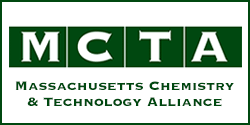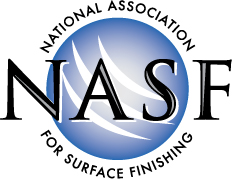| EPA Releases Plan for New Health Risk Assessment for Cobalt
The agency recently released its draft plan for an extensive new health evaluation for cobalt inhalation and will focus its assessment on water-soluble and water-insoluble cobalt compounds.
EPA officials indicated that it plans to carry out a cancer assessment that will likely be more stringent and generate new risk values that could drive additional future restrictions on cobalt use, much like the current hexavalent chromium evaluation under review by the agency.
The agency also recently announced a public meeting in January to discuss several matters related to its approach on inhalation risks from cobalt, including scientific complexities associated with the effort.
If you have any questions or would like additional information regarding this issue, please contact Christian Richter or Jeff Hannapel with NASF at crichter@thepolicygroup.com or jhannapel@thepolicygroup.com.
NASF Highlights Finishing Industry’s Accomplishments in Response to California Air Board’s Proposed Ban on Hexavalent Chromium
On January 27, 2023 the California Air Resources Board (CARB) held a public meeting in Riverside, California on its rule to phase out hexavalent chromium plating.
The industry noted the rule is unnecessary based on:
· the industry’s exemplary achievement in reducing air emissions by 99.7 percent since 1995 and its commitment to continued stewardship and environmental excellence;
· the miniscule contribution of the industry to Cr6 emissions vs the total of all other industry-based sources;
· the already strict state air emission requirements in place for the industry and new controls contemplated by the rule;
· the continued industrial customer demand and specifications for Cr6 applications into the future;
· the industry’s interest in pursuing a less onerous path to transition away from Cr6.
The new rule would impose the following new requirements.
· January 1, 2024 — The new rule would prohibit any new permits for chromic acid anodizing and hard or decorative chromium electroplating facilities.
· January 1, 2026 — Hard chromium and chromic acid anodizing facilities would have to implement control requirements to meet stringent air emissions limits.
· January 1, 2027 – All existing decorative hexavalent chromium would be prohibited.
· January 1, 2039 – All existing hexavalent chromium functional plating and chromic acid anodizing would be prohibited.
Industry Testimony
Nearly 70 industry representatives and company employees testified at the public meeting urging CARB members to rescind or revise the rule to avoid job losses and negative economic impacts on surface finishing facilities in California. NASF participated in the public meeting and provided testimony on behalf of California company members.
Many from industry cited the near zero level of hexavalent chromium emissions from chromium plating and anodizing operations – particularly for decorative chromium applications – compared to other sources of hexavalent chromium. Others noted that decorative hexavalent chromium plating remains an important tool to meet customers’ corrosion and other product performance demands and specifications.
An additional theme of the varied testimony highlighted the fact that surface finishing facilities in California are subject to the most stringent hexavalent chromium emissions regulations in the country. NASF members urged CARB to implement new, even more stringent emissions-based limits rather than banning hexavalent chromium plating and anodizing.
Board Response
Based on the arguments raised in the testimony, several individual CARB members expressed concerns about the smallest facilities with the smallest emissions profile facing the earliest ban, the extremely low emission profile of decorative plating, the necessity for more time for decorative plating to transition to alternatives, and the need for emission-based limits for plating facilities.
The Board requested that industry provide staff with additional information on products, such as medical equipment, that still require decorative hexavalent chromium plating to meet customer specifications and product demands.
Industry Follow-Up and Rulemaking Schedule
In response to CARB staff’s request for additional information, the NASF California Chapters and NASF submitted a letter to Board staff on February 10, 2023. The industry continues to engage CARB members and staff on these issues. Board staff is expected to respond to the letter and/or prepare new rule language for the full Board to consider by mid-March. A final vote on the rule language is scheduled for May 2023. A final rule is expected to be completed and issued by summer 2023 and become effective January 1, 2024.
If you have any questions or would like additional information about the CARB rule and the public meeting, please contact Jeff Hannapel with NASF at jhannapel@thepolicygroup.com.
In the States: New York Becomes Second State to Require Environmental Justice-Focused Cumulative Impact Analysis
New York Governor Kathy Hochul signed New York’s “Cumulative Impacts” bill into law in December, making New York the second state in the nation to require assessment of “cumulative impacts” affecting certain communities before an environmental permit is issued or renewed.
This is approximately two years after New Jersey passed similar “cumulative impact” legislation. The New York law appears to have a blanket prohibition on issuance or renewal of environmental permits to all facilities which might contribute to further impact on “disadvantaged communities.”
Environmental Justice and Cumulative Impact Analysis
The new law requires analysis of “cumulative impacts” on “disadvantaged communities” before a permit is approved or renewed. “Disadvantaged communities” are defined as “communities that bear burdens of negative public health effects, environmental pollution, impacts of climate change, and possess certain socioeconomic criteria, or comprise high-concentrations of low- and moderate- income households.”
Facilities operating in these “disadvantaged communities” would be required to prepare “existing burden reports” containing baseline environmental monitoring data collected within the past two years and information identifying the following:
· each existing pollution source or categories of sources affecting the community;
· the potential routes of human exposure to pollution from each source or categories of sources;”
· ambient concentration of regulated air pollutants and regulated or unregulated toxic air pollutants;
· traffic volume;
· noise and odor levels;
· exposure or potential exposure to lead paint;
· exposure or potential exposure to contaminated drinking water supplies;
· proximity to sources like solid or hazardous waste management facilities, wastewater treatment plants, hazardous waste sites, incinerators, recycling facilities, waste transfer facilities and petroleum or chemical manufacturing, storage, treatment or disposal facilities;
· the potential or documented cumulative human health effects of the pollution sources; and
· the potential or projected contribution of the proposed action to existing pollution burdens in the community and potential health effects of such contribution.
Notably, “[n]o permit shall be approved or renewed by the department if it may cause or contribute to, either directly or indirectly, a disproportionate or inequitable or both disproportionate and inequitable pollution burden on a disadvantaged community.” New York state regulators would make this determination as part of a rulemaking and public participation process to be established later this year.
NASF 1000
The NASF 1000 program was established to ensure that the surface finishing industry would have resources to effectively address regulatory, legislative and legal actions impacting the industry, NASF members and their workplaces. All funds from the NASF 1000 program are used exclusively to support specific projects and initiatives that fall outside the association’s day-to-day public policy activities. The commitment to this program is one of the most vital contributions made in support of surface finishing and directly shapes the future of the industry.
The sustained commitment from industry leaders has helped the NASF remain strong and credible in informing regulatory decisions across the nation. Specific projects funded through the NASF 1000 make a measurable difference in how the industry navigates emerging challenges, communicates credibly with policy makers, and advocates for a strong science base for rules or standards that affect surface finishing.
Please consider supporting the NASF 1000 program. If you have any questions or would like additional information regarding the NASF 1000 program or the broad array of NASF public policy activities, please contact Jeff Hannapel with NASF at jhannapel@thepolicygroup.com.
|








 New England Chapter of NASF is an official chapter of
New England Chapter of NASF is an official chapter of